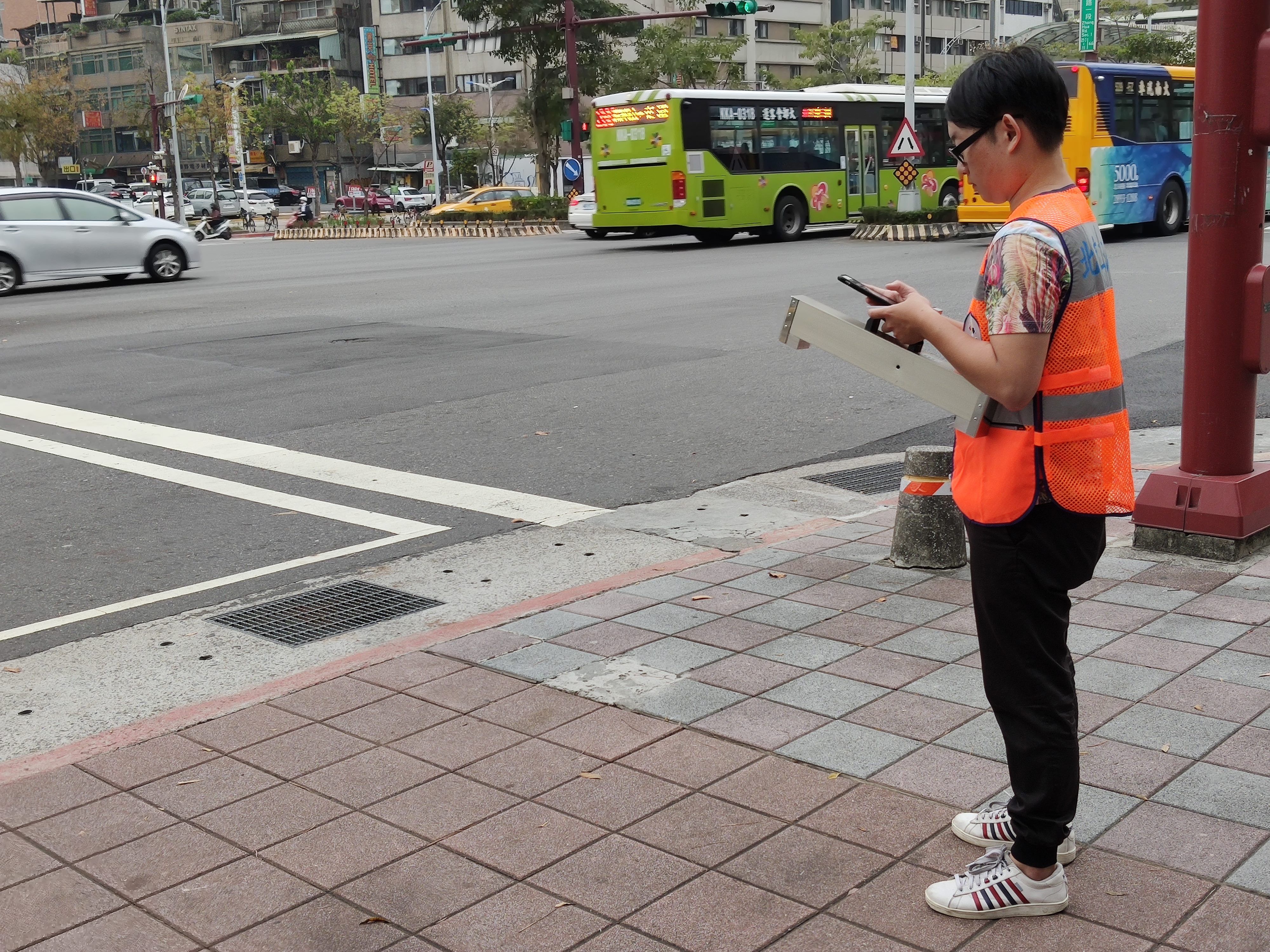Searching for Road Construction-Related Records Anytime
 “Which contractor paved the road surface?” The seemingly simple question often catches investigators off guard. Taipei City Road & Pipeline Information Center (RPIC) has utilized big data information from the cloud on road construction projects to create a comprehensive database of all road construction projects in Taipei City, where the construction records of any region can be looked up via GPS to pinpoint contractors who have not satisfied the required construction quality standards.
“Which contractor paved the road surface?” The seemingly simple question often catches investigators off guard. Taipei City Road & Pipeline Information Center (RPIC) has utilized big data information from the cloud on road construction projects to create a comprehensive database of all road construction projects in Taipei City, where the construction records of any region can be looked up via GPS to pinpoint contractors who have not satisfied the required construction quality standards.
According to RPIC Director Chen Hung-Ming, road maintenance in downtown Taipei is conducted by the New Construction Office of the Public Works Department (NCO) annually by renewing the pavement. Moreover, various pipeline authorities must cooperate with municipal construction, infrastructure, and emergency repair-related road excavation projects, where localized road surface renewals are carried out; hence, identifying the unit(s) responsible for the road repairs can be a complex task.
Previously, when flaws were discovered during road inspections, photos of the location were taken before going back to the office to access construction contracts and excavation application-related information. After the warranty and responsibility were clarified, contractors would be notified to conduct repairs, or improvement notices sent to the relevant pipeline authority to implement improvements before the specified deadline. In order to shorten the process, the RPIC will begin digitizing information this year, providing road inspectors with the ability to look up road construction project-related records online to address Taipei City’s road flaws more efficiently and quickly.
According to RPIC Road Excavation Management Section Chief Huang Chi-Mo, all road excavations, repairs, maintenance, manhole construction, and road restorations around construction sites must be reported to the RPIC, and contractors may only begin construction after receiving a permit from the RPIC. Thereafter, they can check for road construction-relation records via the Taipei City Road Excavation Management System’s visual GIS data in conjunction with the AI comparison function, which contains various construction times, locations, and repair areas associated with each permit.
Wang Shun-Ping, inspector at RPIC 3rd Inspection Office, commented that he can access road construction-related records through the smartphone’s GPS coupled with location fine-tuning, making it very convenient to pinpoint contractors who have not met the construction quality standards.
The RPIC mentioned that the real problem with the search function of the road construction project records lies in the integrity and accuracy of the database. Since the RPIC was founded in 2015, it has been dedicated to the smart management of road excavation and construction projects. However, the RPIC also relies on the 1999 Taipei Citizen Hotline, anti-corruption volunteers, village chiefs, and various precincts of the Taipei City Police Department to supervise and report road construction violations, so as to decrease the number of unauthorized excavations by checking the permits and other related information. In the future, the RPIC will continue to launch innovative programs to elevate the quality of road service and citizens’ quality of life.

![Taiwan.gov.tw [ open a new window]](/images/egov.png)

